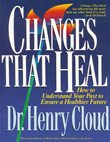Things to Remember
1. No one is born gay, and no one chooses to be gay. Because of relational brokenness in families and among peers, some people experience emotional needs that they try to meet in ungodly ways. Many of them are uncomfortable with their own gender; later, they discover they are attracted to others of the same sex, but this is not their choice. Acting on it, however, is.
2. Change is possible. Even going back to the first-century church, the apostle Paul wrote to former homosexuals in the Corinthian church, “and such were some of you” (1 Cor. 6:11).
3. Because we live in a fallen world, we are all broken. Many people in our churches are sexually broken—victims of incest, pornography and masturbation addicts, and compulsive sex addiction. Homosexuality is only one form of brokenness.
4. Homosexuality grows out of broken relationships and is healed in healthy relationships, especially same-sex relationships. This is one of the reasons it is essential for recovering homosexuals and lesbians to be actively involved in the church, because this is where they can find healthy, God-honoring friendships. Their homosexuality is not contagious!
5. Treat them with respect like you would anyone else. They are people made in the image of God for whom Christ died—they are not their sexuality. Many people trying to come out of the gay lifestyle expect to find respect and acceptance only in the gay community. Finding it in church is immensely healing to their souls.
6. Accept them where they are, just as Jesus did. Choose to accept the person, but not sinful behavior. People don’t change unless they experience the grace of acceptance first. But once they know they are loved and accepted, many of them are willing to do what it takes to live a life of holiness.
7. Seek to see them with God’s eyes of love and acceptance, with His intention for their wholeness, healing and freedom. This means depending on the Holy Spirit for divine perspective and exercising humility to recognize that first impressions are often incomplete and inaccurate.
8. This is a great opportunity to lead people to an understanding of what it means to have a personal relationship with Jesus Christ. Some homosexual strugglers, especially men, feel that they have committed the unpardonable sin. They’ve heard they are going to hell no matter what they do, so they are permanently separated from God. They need to know this is a lie, because when we confess our sins, the blood of Jesus covers them ALL and cleanses us from all unrighteousness (1 John 1:9).
9. Because of abuse issues, most strugglers seem to have an especially hard time relating to Father God and to receiving His love. Yet it is the masculine voice (first in earthly fathers, and ultimately in our Heavenly Father) that calls gender out from both men and women, and it is the Father’s personal and powerful love that is the most important healing agent in human hearts.
10. Because most pastors are men in authority, most strugglers (men and women) are INCREDIBLY intimidated by them. Pastors need to know this and really understand in order to minister to strugglers. This means respecting the fragility of strugglers’ relationships with pastors and choosing to be deliberately tender and gentle. They really need “good shepherds.” Verbalize to them that God can not only change them, but He is very proud of them (as you are) for sharing this with you and desiring to change.
11. Most same-sex strugglers have very weak and broken boundaries. Their deep neediness causes them to lapse into emotionally dependent relationships with everyone who gets close. We encourage you to only counsel these folks at your office during regular business hours where others can be aware of your activities. This gives a sense of security to the struggler and a protection for you as the pastor.
12. The most success in overcoming same-gender attraction has occurred when strugglers experienced God as Healer through heterosexual people who were willing to come alongside them in their journeys—men helping men, and women helping women. It would be helpful for you to find someone willing to befriend and mentor the struggler. This takes a person willing to seriously invest in the life of a very needy person. They will need to be available and accessible. Their presence in the struggler’s life can be powerful and healing.
13. If someone comes in with an agenda of arrogance, demanding acceptance of their sexual sin, don’t let them bully you. There is a difference between welcoming the sinner and allowing him to continue in his rebellion. Homosexuality is sin. Lev. 18:22-23; Rom. 1:26-27, 1 Cor. 6:9-11. Note that these verses condemn homosexual behavior, not feelings.
Five DON’TS:
1. Don’t panic. An excellent resource for understanding the issue of homosexuality is Someone I Love is Gay by Bob Davies and Anita Worthen (published by InterVarsity Press). Also Exodus International (exodusinternational.org/), a Christ-centered ministry that helps people deal with unwanted homosexuality, has numerous resources. Living Hope Ministries (www.livehope.org) is an Exodus referral ministry in the Dallas/Ft. Worth area with excellent online forums for parents, spouses, men and women, and youth (ages 13+) who struggle with homosexuality
2. Don’t make false assumptions or accusations. For example, please do not assume he is HIV positive. Many aren’t. And if he is, AIDS is sexually transmitted; the people in your congregation are safer than many fear. Respect the seriousness of HIV with commonsense precautions (such as contact with bodily fluids), but don’t ostracize the person. Handshakes and hugs are perfectly safe.
3. Don’t shut down pastorally or emotionally. The person coming to you has known a lifetime of rejection and desperately needs to know that a representative of Jesus Christ will extend grace to him. Hug them when they leave. It may be the first positive touch they have had in years.
4. Don’t pass judgment. All of us have besetting sins! As Billy Graham said, “Don’t take credit for not falling into a temptation that never tempted you in the first place.”
5. Don’t disclose this person’s secret without permission, even among church staff. There is nothing safe about the gay lifestyle; people struggling with same-sex attraction need to find safety in the church.
This is the text of a brochure from Living Hope Ministries, written by Sue Bohlin, who serves on the Board of Directors of Living Hope and moderates one of the online forums. A PDF version of this brochure is also available for download here; you will need the free Adobe Acrobat reader to see it.
© 2003 Living Hope Ministries. Used by permission. All rights reserved.











